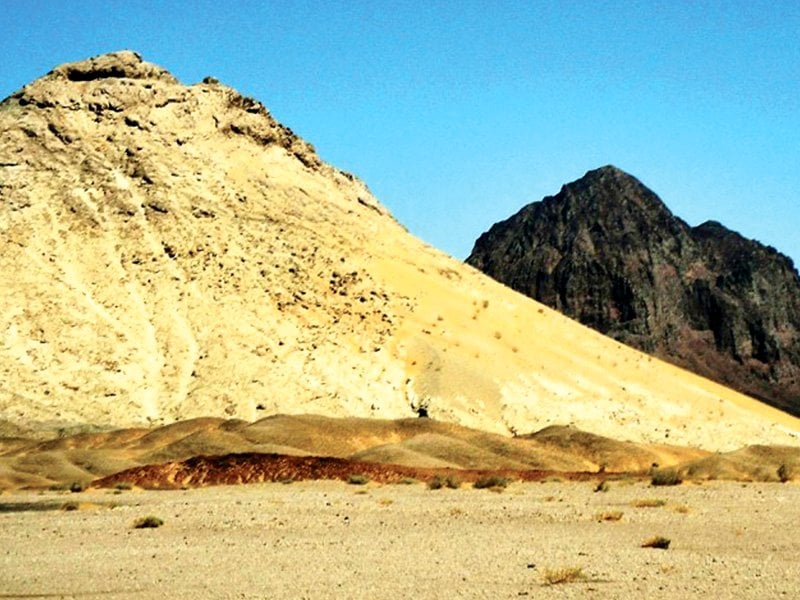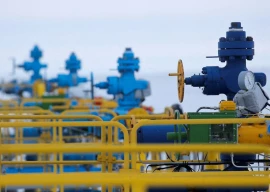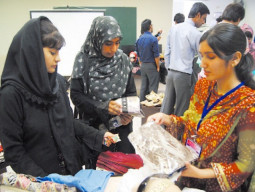
In a press note issued on Thursday, TCC – a consortium of Canada-based Barrick Gold and Chile-based Antofagasta Minerals – said it had decided not to pursue the grant of a mining lease for the Reko Diq reserves, and would seek monetary compensation instead for ‘damages’ inflicted by the federal and Balochistan governments’ alleged breaches of contract and treaty rights.
“Recent developments have regrettably compelled TCC to withdraw the request for specific performance,” said TCC chief executive officer Tim Livesey in his statement.
“TCC invested enormous time, effort and capital in the Chaghai district.”
“Through that investment, we took a small copper exploration target in a previous unexplored segment of the Tethyan belt and developed it into a world class mining project at Reko Diq.” The TCC CEO maintained that while the company had long hoped to mine Reko Diq, the conduct of Pakistan and Balochistan has made that goal impracticable.
“The federal and provincial governments have not responded to our many attempts to engage, have prevented TCC from participating in the development of the new mining sector in the province, and have denied both TCC and the people of Balochistan and Pakistan the enormous benefits that our project would have brought to the country,” he maintained.
“We will pursue our claims for monetary damages, including lost profits for the mining operations, in the international arbitration,” Livesey’s statement concluded.
While determining the amount of compensation TCC may receive in case it is awarded a decision in its favour is a wild guess at this stage, experts say it could range as high as a few billion dollars. TCC’s investment in the exploration and mining of Reko Diq will be the determining factor in case the decision is announced against Pakistan.
According to officials of the Provincial Mines and Mineral Development, TCC had invested around $200 million and expected the damages claims would be just slightly higher.
Some see TCC’s shift from claiming the mining rights of Reko Diq to seeking compensation for damages as a desperate attempt to force the newly-elected government back to the negotiation table.
“TCC is not giving up its so-called mining rights… they were in fact taken away from them by the Supreme Court,” said Raza Kazim, the lawyer who fought the Reko Diq case on behalf of private parties in Balochistan.
He maintained TCC’s move was not a new one. The Canadian High Commission had earlier threatened to take the step in a letter written to the government of Pakistan. Through the letter, the high commission sought an out-of-court settlement, threatening that the ‘biggest award in the history of arbitration’ would be issued against Pakistan if it failed to do so, Kazim said. He added that the letter was placed on the SC record.
In its ruling, a three-judge bench of the apex court, headed by Chief Justice Iftikhar Muhammad Chaudhry, stated that the agreement reached on July 23, 1993 was in conflict with the laws of the country.
The total area of the Reqo Diq gold mines is said to be spread over 13,000 square kilometres and was valued over $3 trillion. TCC had been given mining rights for only 99 square kilometres.
MRDL paid $39.8m in royalties for Saindak since 2003
According to a source, Chinese state-owned mining company MRDL has deposited $39.8 million with the Balochistan government in royalties for the Saindak Copper and Gold Project over the past decade.
A source said MRDL had financed the project by providing $10 million for the rehabilitation of the local population and $15 million as working capital. The company has paid $220 million to the federal government as its share in profit, $6 million as the lease rent of the project, $13.4 million as presumptive tax and $6 million as development surcharge during the period from 2002 to 2012.
Published in The Express Tribune, June 14th, 2013.
COMMENTS (8)
Comments are moderated and generally will be posted if they are on-topic and not abusive.
For more information, please see our Comments FAQ

1725784957-0/Tribune-Pic-(17)1725784957-0-165x106.webp)
1724760612-0/Untitled-design-(12)1724760612-0-165x106.webp)














By the above comments, I see that Pakistanis are quite childish. No wonder Pakistan stands so low. Have fun within your little bubble while the world progresses!
No foreign investor will touch this project until this dispute is resolved. Pakistan has mishandled this dispute and ignored advice which indicated you would lose in arbitration and SC involvement wouldn't resolve anything. Your going to be stuck with an enormous judgment which will be hard to ignore and harder to pay.
Who were the people in Pakistan that got TCC this contract? Why are they not brought to face the court? Dr Samarmand Mubarik , in one of his recent lectures at the Pakistan Intl School in Riyadh, mentioned that its the former CM of Baluchistan, Nawab Aslam Khan Raisani who saved the Redo Deg Project. Had it not been for him, this country would have faced immese loss.
The prevalent mentality has been that all foreign multinationals are evil. ''If we wont mine it, no one else will''. Perhaps the only 'corrupt' practice was that the company did not bribe enough people. Keep acting like conspiracy freaks; they will take business elsewhere.
TCC in connivance with corrupt officials of Baluchistan tried to rob Baluchistan. Why such agreements are not made public in the first place. Why not take advantage of Iranian technology and assistance.
The Government of Pakistan should instead file a case in related international court regarding the exploit and/or corporate criminal conduct of this Canadian company.
Although times have changed , but the word imperialist cannot yet be eliminated from the English dictionary
"and have denied both TCC and the people of Balochistan and Pakistan the enormous benefits that our project would have brought to the country".........it's a shame when big corporations like TTC makes such hollow statements.........if this was the case then people who are working in Walmart, Loblaws, Metro, etc could have been millionaire if not billionaire.
TTC was there to simply rob the people of Pakistan, I wish that people of Pakistan take control of their natural resources because ALLAH (SWT) has blessed Pakistan with enormous wealth.
These companies violated the convention against foreign corrupt practices act, therefore they have no claims, rather their executive should be in prison in Canada and Chile